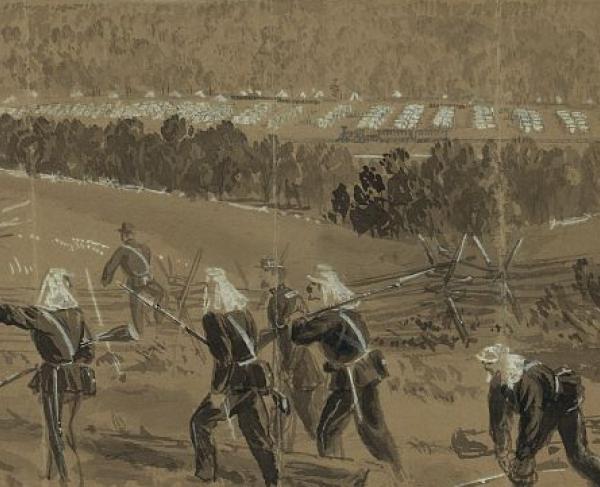Antietam 360: Natural and Man-made Features High School Lesson Plan

Grades: High School
Approximate Length of Time: 90 minutes
Goal: Students will use the American Battlefield Trust Antietam 360 Virtual Tour to study certain moments of the battle and analyze how the natural and man-made environment affected the maneuvers, strategies, and tactics used during the battle as well as how these factors impacted the outcome of the battle.
Objectives:
- Students will be able to discuss how soldiers and generals conducted battles during the American Civil War.
- After watching the accompanying videos and exploring the Antietam 360 Virtual Tour, students will be able to identify the important features and phases of the Battle of Antietam.
- Students will learn how modern technology allows you to access and understand historic sites and events around the world.
Common Core:
CCSS.ELA-LITERACY.RH.11-12.7
Integrate and evaluate multiple sources of information presented in diverse formats and media (e.g., visually, quantitatively, as well as in words) in order to address a question or solve a problem.
NCSS Standards for Social Studies:
2—Time, Continuity, and Change
3—People, Places, and Environment
8—Science, Technology, and Society
Materials:
- Antietam 360 Virtual Tour
- The Battle of Antietam Animated Map
- Infantry Tactics In4 video
- Civil War Armies In4 video
- Why Did Civil War Soldier Fight in Lines Battlefield U
- Terrain In4 video
- Antietam In4 video (Optional)
- Antietam Letters and Diaries of Soldiers and Civilians (Optional)
- Antietam “Eyewitness to Battle” page (Optional)
Anticipatory Set/Hook:
- Write the word environment on the board and have your students define the word.
- Ask your students to define a man-made structure (building, road, barn, bridge, etc.) and write the examples on the board.
- Define and explain the difference between “strategy” and “tactics.”
Strategy: a plan of action or policy designed to achieve a major or overall aim.
Tactics: the science and art of disposing and maneuvering forces in combat. - As your students to place themselves in the mindset of a Civil War general as they explore the videos and Antietam 360 Virtual Tour. Have them consider the terrain that they are seeing, the man-made objects that might be an advantage or disadvantage for the attacker or defender.
Procedure:
Queue up the American Battlefield Trust Antietam Animated Map, the Antietam 360 Virtual Tour, Infantry Tactics In4, Civil War Armies In4, Terrain In4, and the “Why did Civil War soldiers fight in lines” Battlefield U.
Activity
- Show Infantry Tactics In4 video.
- Show Civil War Armies In4 video.
- Show “Why did Civil War soldiers fight in lines” Battlefield U
- Show the Antietam Animated Map for background about the battle.
- Project the Antietam 360 Virtual Tour onto a smartboard or screen for the entire class to view.
- Focus on certain points in the battle where the natural and built environments effect what takes place. Two suggestions are Burnside’s Bridge and the Bloody Lane.
- Utilize the assets within the Antietam 360 Virtual Tour to show off modern and historic photos from the battlefield.
- Have students create an original piece of work related to their research.
- Original pieces of work can include: creating an illustration of how these natural and built features were used in the battle; write an account as if the student was a soldier at the battle relating their experiences at the Bloody Lane or Burnside Bridge; have your students become the general and pick their defensive position on the battlefield-have them explain why they would choose to defend or attack the Burnside Bridge, Bloody Lane, or other portion of the battlefield.
- Students can use the optional letters, diaries, and “eyewitness of battle” pages to create their original pieces of work.
Closure:
Have your students present their original pieces to the rest of the class.
Assessment in This Lesson:
- Student completion and presentation of their original piece of work.


